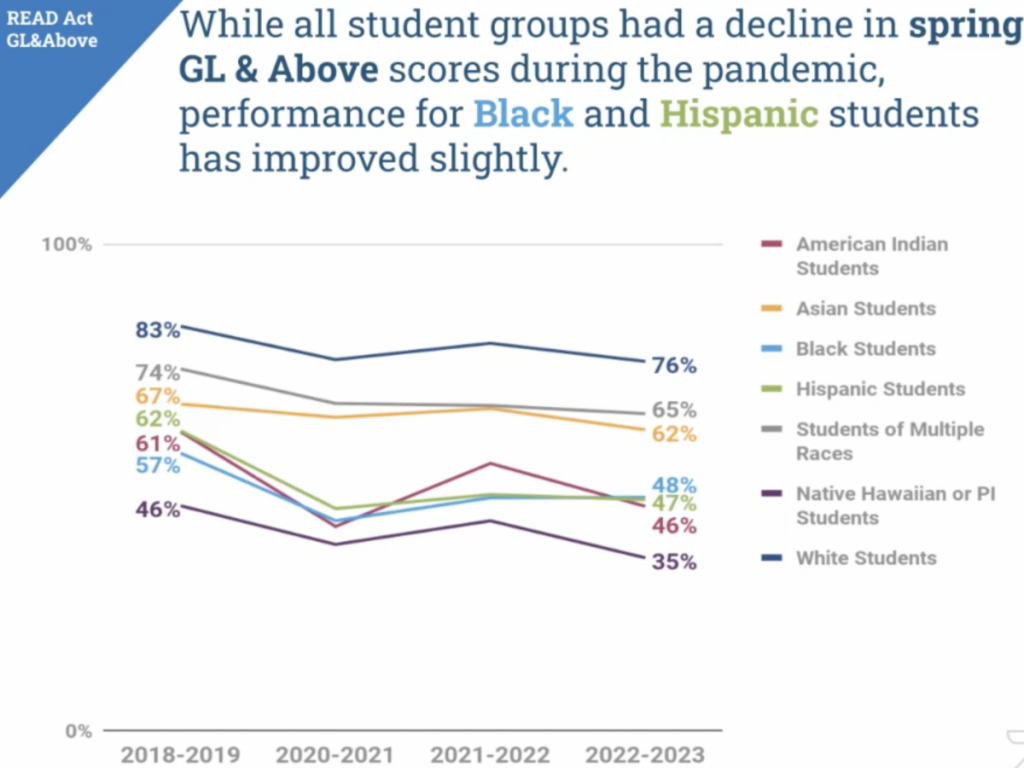Editor’s note: This is the February article by monthly Boardhawk columnist Alexis Menocal Harrigan.
Last Friday, the Denver Public Schools Board of Education held a work session covering three data requests made by board members; school performance and academic achievement, Safety and Student Discipline, and Student Mental Health.
As a DPS parent, these three topics are part of the regular, overflowing list of concerns for my children’s wellbeing.
My children’s academic performance, their mental health, and my concerns about school safety (which I try not to think about too often or it will gnaw at the core of my soul) are just part of my general and ever-present low-level (and sometimes high-level) mom-anxiety and guilt. I want to live in a community where my mom-anxiety is not just my burden.
I want to know that the concerns of parents are also the concerns of the leaders shaping my children’s school experience. This goes beyond their teachers, who are asked to do too much for too little, and if I am honest, shape my children’s academic performance far more than I ever will.
I want to know that the leaders of DPS are also focused on and motivated by a healthy level of pressure about not failing our children. I want to live in a community where district leaders understand the magnitude of the burden that comes with making decisions around school closures, removing School Resource Officers from schools, and the importance of accountability for student outcomes and COVID recovery.
I want to take our leaders seriously and I want to worry a little less because I trust our board and superintendent to take on difficult topics thoughtfully. I want board members to seek the expertise of DPS staff to provide facts and data to inform their policies and pivots.
And yet, when I have watched board meetings, I have seen some board members talking just to hear themselves speak. I see tirades fueled by political posturing.
Instead of hearing monologues, I want to hear how district leaders are making sure kids are reading at grade level, that kids’ mental health is being addressed, and that students and parents feel safe entering school buildings.
I want them to get into the details, into metrics and outcomes. I want the board meetings to be so boring and focused on policy, data, and student performance that Kyle Clark’s X feed never mentions board meetings or board members.
Last Friday’s board work session was refreshing. The meeting was a thoughtful discussion among peers who were asking questions of prepared and informed staff on topics that matter — the welfare and academic achievement of children.
Board members weren’t waxing poetic about systems of oppression and equity, which ironically tarnishes opportunities to address equity gaps in academic achievement, mental health, and safety. Missing from the board meeting was grandstanding and egocentrism.
Missing from the meeting were board members Michelle Quattlebaum and Scott Esserman, and Superintendent Alex Marrero.
Board members in attendance asked succinct questions, and despite only having an hour, Deputy Superintendent Tony Smith and his staff were able to cover in detail the academic performance trends of students across a variety of indicators.
They were also able to cover important trends in student safety, discipline, and attendance. This contrasts with many board meetings when time runs out and people are desperate to get out of the room to save themselves from having to hear rambling, incoherent soapbox speeches.
The content itself was sobering. Students are still lagging from their 2018-2019 school year academic performance. Staff attributed most of the dips to Covid-19 learning loss and staff turnover. While I agree these are likely driving factors, I can’t help but wonder how the board drama over the last two years has indirectly contributed to student performance.
I hope DPS’s leadership will return to making student performance, health, and safety data more readily available. I hope DPS will return to providing parents like me with the tools needed to make important decisions about my children’s future. I hope DPS board meetings will be boring, data-heavy, and accountability-centered.
Friday’s board meeting was a result of board requests for data that board members and constituents alike are desperate to have and yet has been unnecessarily difficult to get.
Why do board members need to request data on topics that are top of mind for DPS stakeholders in the first place? Why isn’t this crucial information part of the ongoing cadence of communication to the board and readily available to the public?
Why is an independent nonprofit filling the gap in providing detailed information about Denver schools to help caregivers make informed decisions about which schools will best serve their children?
I don’t have the answers to these questions, but with new board members asking for vital information, I see an opportunity for new leadership, policies, and practices that are driven by a healthy level of pressure to ensure student success.




